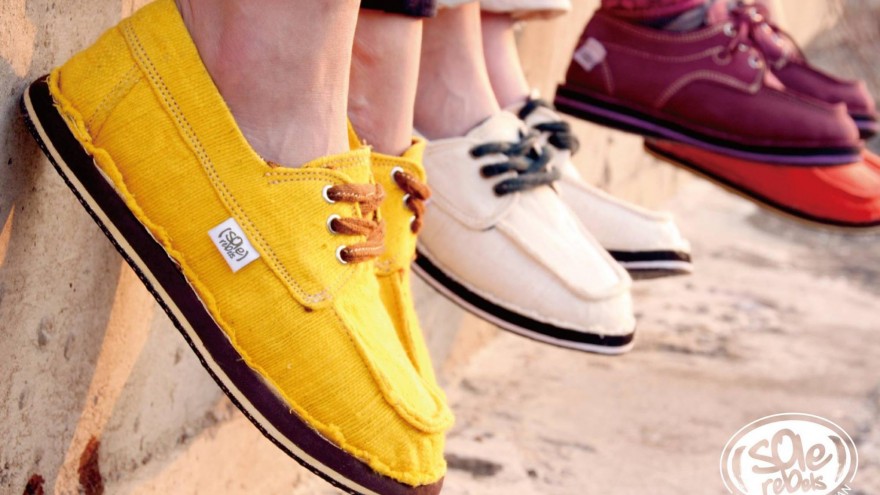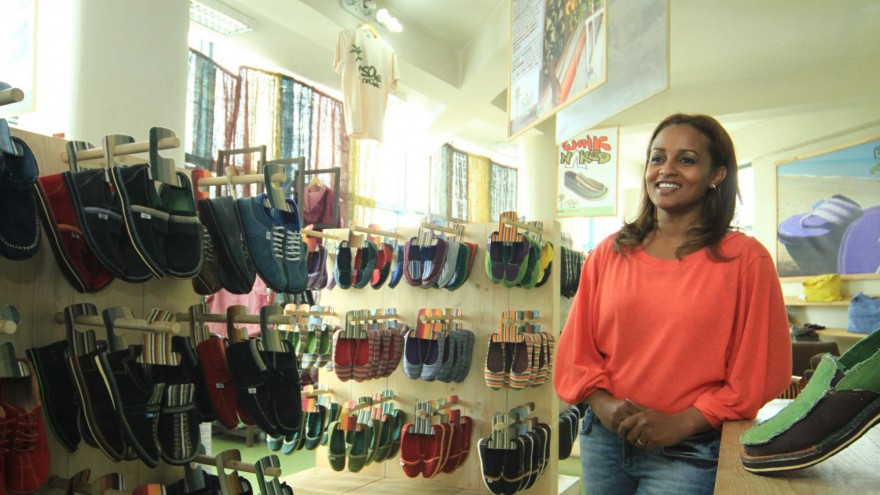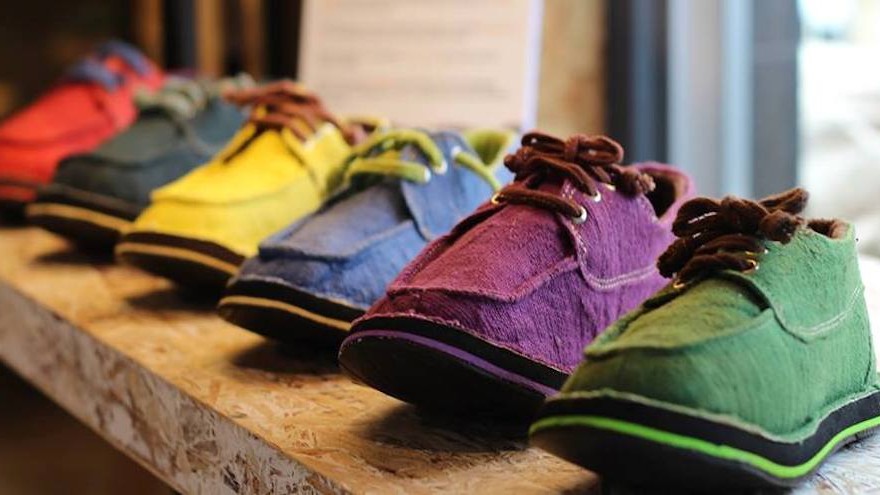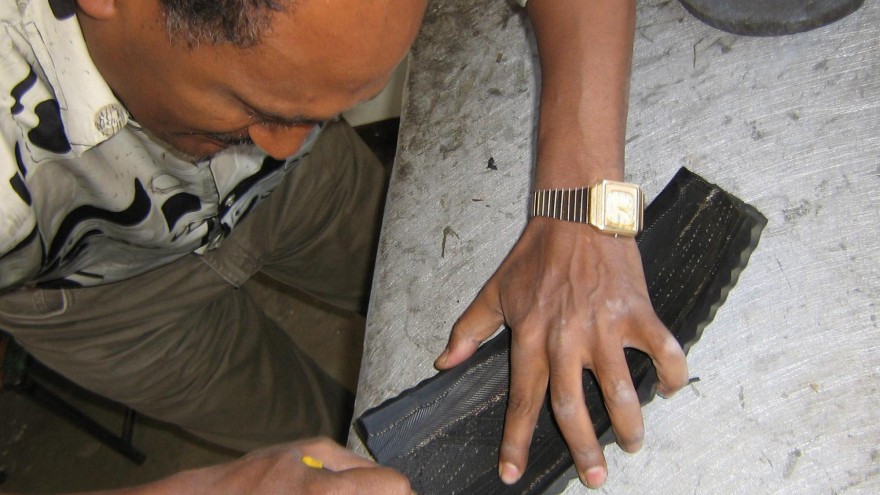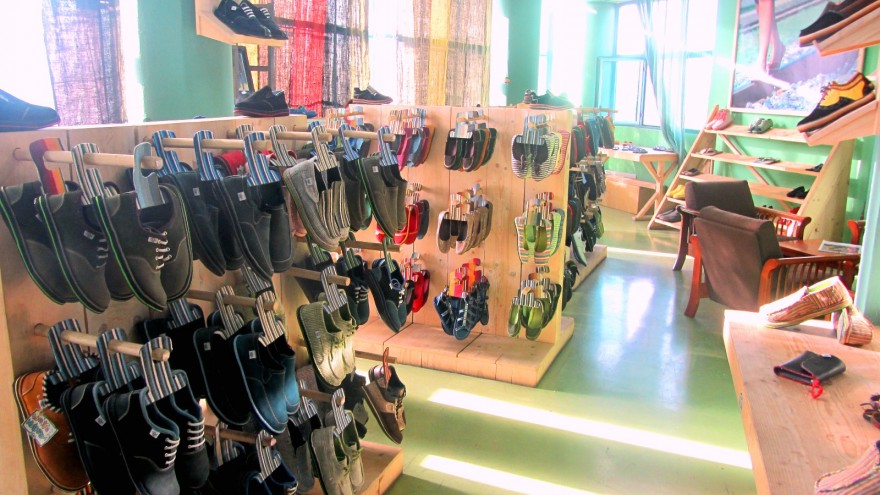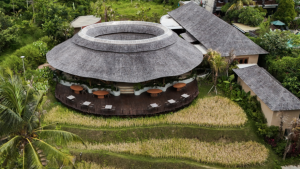Designed and produced in Zenabwork, a small community on the outskirts of Addis Ababa, soleRebels has grown from five employees to a company employing more than 100 Ethiopians. There are stores in more than 55 countries.
“From a physical standpoint it was basic: we self-financed. Five workers plus myself working inside a workshop situated on my grandmother’s plot of land inside our village,” says soleRebels founder Bethlehem Alemu.
The brand began with simple "barabasso" or "seleate" shoes (traditional Ethiopian car tyre-soled shoes) and now includes a range of diverse designs. But the traditional Ethiopian tyre sole has remained as a staple design element. There are summer slip-slops in bright colours ranging from nautical to Rastafarian; practical winter boots with a pure leather body lined in hand-spun wool; and gladiator sandals in pure white. SoleRebels even manufactures vegan shoes – shoes made without leather or any other animal products.
The fabrics on the shoes are the product of hand-spun cotton, which is hand-loomed. SoleRebels uses traditional millennia-old hand-looming and hand-spinning methods. Alemu grew up watching her mother employ these methods on an “inzert”, the wooden hand drop spindle traditionally used in Ethiopia.
We focus on developing new inputs and products all the time. We experiment with new weaves, finishings, materials and stitches.
For the next two years, soleRebels is working on launching its “walk naked kiosks” that will marry technology and craftsmanship. The kiosks will be interactive, allowing customers to create custom shoes in real time with soleRebels artisans in Addis Ababa. This means that by standing at a walk naked kiosk in Barcelona, for example, one will be able to connect to artisans in Ethiopia and choose one’s own colours and trims – and have the shoes made in real time.
Alemu worked in marketing, sales, design and production in various leather and apparel companies before establishing soleRebels. “I had a strong desire to start to focus my business skills on my community, which is one of the most impoverished areas in Addis Ababa,” she says.
Alemu grew up in Ethiopia during the time of international humanitarian aid. “I saw the devastating effect that aid and charity had on the wider community, in terms of making people dependant.” The only lasting solution to the poverty problem in her community, as Alemu saw it, would come from building a business oriented in the community by leveraging its existing skill set. After all, the traditional artisan skills and raw materials required to build the shoes were there, but they required redefinition and refinement.
It has also served as a powerful counter to generations of media that have attempted to show Ethiopians as helpless, passive recipients of aid. My story runs directly counter to that narrative and has, in fact, flipped the discourse on African development from one of poverty alleviation orchestrated by external actors, to one about prosperity creation driven by local Africans maximising their talents and resources.

